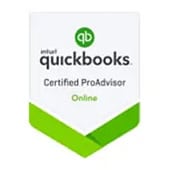Sometimes big IRS related terms can mean BIG trouble
If you have problems getting to sleep at night and you turn to the IRS tax code for help, you might find some vocabulary that is very foreign to words you use every day. One of the more common words used by the IRS is the term “contemporaneous”. So what does it mean and why should you care?
Contemporaneous Defined
According to the IRS it means the records used to support a claim on your tax return were created and originated at the same time as your claimed deduction. In other words, if you realize that you forgot to get a receipt for something, you are out of luck if you try to get one at a later date.
Not Fair!
Perhaps you know you had the expense, but you simply forgot to get a receipt. You can cry foul, but time and again the IRS has had tax courts uphold their elimination of a taxpayer’s deduction for lack of contemporaneous documentation. Here are some areas where contemporaneous documentation is especially important:
- Charitable contributions
- Business deductions for expenses and capital purchases
- Mileage logs
- Tip records
- Gambling losses
- Traveling and entertainment expenses
- Hobby losses
The donation of vehicles, boats, and planes is often the most cited area where lack of contemporaneous documentation is a problem. This is because the value of this type of donation can be high and the estimated market value could change each month. But timely, written acknowledgement from the charitable organization is also required for any donation of $250 or more.
What you need to know
- Always get a receipt. Before you leave a donated item, always ask for a receipt. In the case of a vehicle, make sure the charitable organization gives you a 1098-C fully filled out. In addition, make sure the organization uses your vehicle or is a qualified charitable group that allows you to take the full market value of your donation.
- If you forget, call right away. As soon as you realize a confirmation or receipt is missing, call to get one sent to you. Request that the receipt be dated as of the date of the service or activity.
- Think tax year. Understanding the definition of contemporaneous is important, because it is not always “precisely” defined. If the documentation is received in the same year as the donation or transaction, you are usually in good shape.
- Keep a log. Many expenses require the correct documentation at the time the activity occurred. This is true with deductible mileage, gambling loses, and documenting your tip income. So keep a log of your activities when they occur.
Wait to file. Often, to meet the IRS definition of contemporaneous, the receipt or acknowledgement must be received the earlier of either; when you file your tax return OR the due date (including extensions) of your tax return. This is particularly true with charitable contributions. So if you want to play it safe, do not file until all documentation is in hand.








